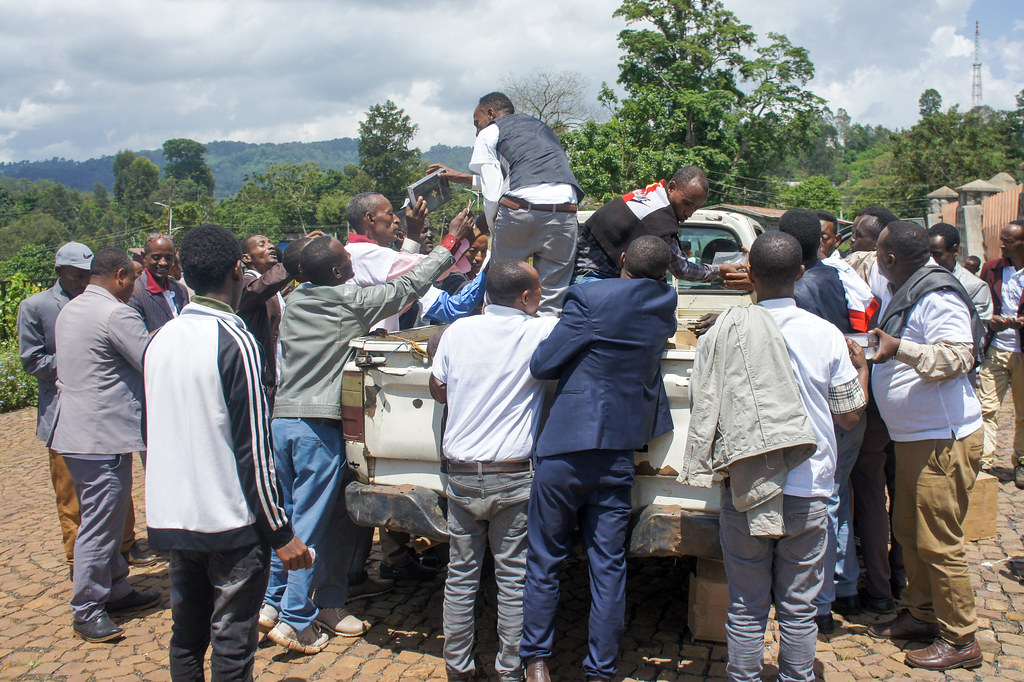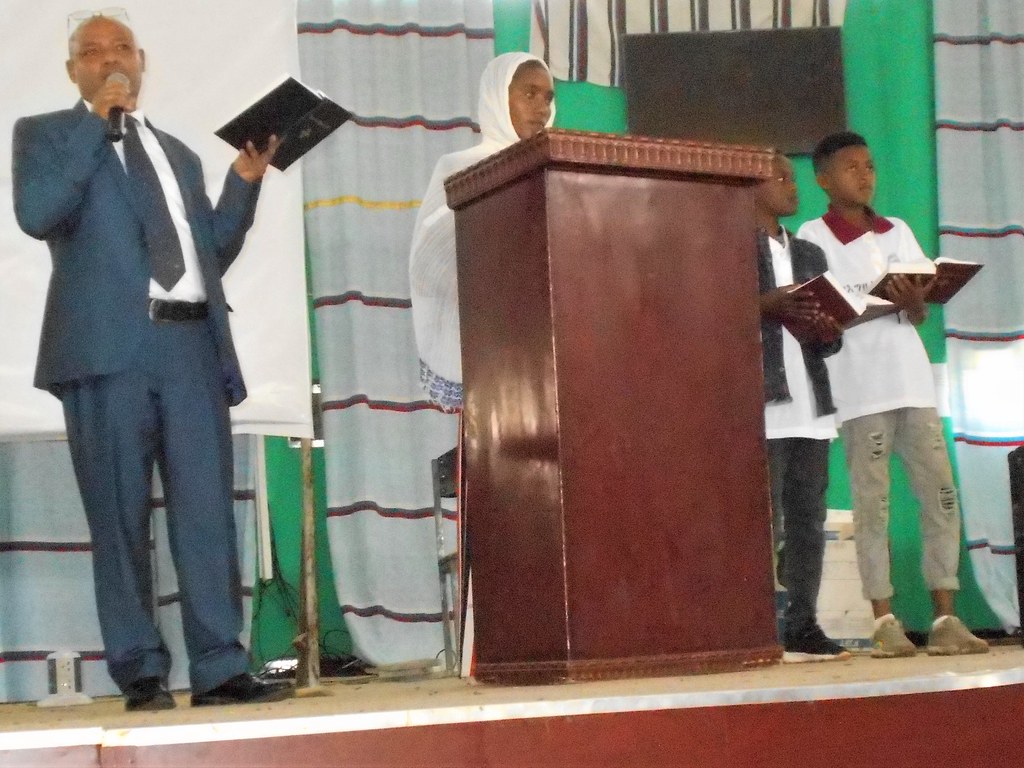Long awaited fruit: The Kafa Bible
By Tohru Inoue | Ethiopia in East Africa

Women holding the Kafa Bible. Photo by Tom Fifield.
After a labour of love spanning more than 40 years, the Kafa Bible was dedicated in Bonga, Ethiopia, earlier this year. Matewos Gebremariam and Carolyn Ford, representing the translation team, witnessed the dedication, but these two weren’t always part of the project. The list of people involved is long and – just like the genealogies in the Bible – spans a lengthy period of time.
Ruth Cremer first took on the Kafa translation project in 1981, working with Solomon Wolde. Eventually, Solomon left and Demeke Gobana and Mekonnen Mageto joined. Then there was Matewos Gebremariam, Gezahegn Wodajo, Kurt Michler, Tekalign Shiferaw and Kochito Alemayehu.

In the biblical genealogies, I imagine the people who are early on the lists wishing they could have met the names later on the list. But the names that came first in the genealogies didn’t live to see those days.
Many of the earlier translators’ names above also didn’t see the end of their work. Some came for a season, and like working on a farm, tilled the soil but never got to see any buds form. Others tended the weeds but left this earth before the flowers bloomed. They passed away, leaving behind their work for a whole new group.

People crowding around the truck to buy their copy of the Bible on dedication day. Photo by Tom Fifield.
Ruth Cremer was diagnosed with acute leukaemia in 2008 and passed away that year. In 2013, Gezahegn Wodajo was diagnosed with liver cancer. He passed the following year, leaving behind a young family.

Carolyn Ford (left) with friend. Taken by Tom Fifield.
At the dedication ceremony, the book of Ruth was read. It was an interesting choice. It, too, tracks the story of those who remain behind when others have left too soon. In the story, Naomi’s husband and her two sons die, leaving her and her two daughters-in-law widowed. At this point, you would be forgiven for believing that the genealogy ends there – that no more names would follow on.
But if there is something I’ve learned from reading the biblical genealogies, even when it looks like names have run out, God keeps going until he’s finished his work.
Naomi’s daughter-in-law, Ruth, eventually marries Boaz and becomes the mother of Obed, who becomes the father of Jesse, who becomes the father of David, the great king!

Matewos who helped in the translation work. Photo by Carolyn Ford.
But even David is not the last name …
Even after some names had left “early,” God added names who saw the translation work through. Some names came and translated the minor prophets. Others came and did the Psalms, and others still typeset the text. And now, after all those names listed at the top, we’ve witnessed the fruit of the completed Kafa Bible!
But fruits in turn produce seeds that yearn to be planted again. Holding the fruit of the Bible dedication is not the end but a chance to grab a handful of this beautiful new seed and scatter it extravagantly until it finds good soil to start all over again. That will be the work for a whole new generation of names God adds.
A name like yours, perhaps.
His work is carrying on. Because it’s not done until he’s written in the last name.
Grow with us
Come be part of the church’s work in reaching those in communities where Jesus is least known! Contact us today to get started.
Related stories

Doro Clinic outreach programmes reach the forgotten with care and the gospel
In South Sudan’s Maban County, medical teams from SIM’s Doro Clinic are reaching refugees who can’t reach them, bringing healing, hope and the gospel to the sick, the stigmatised and the overlooked.

Today for Tomorrow is rooting the next generation in Christ across Southern Africa
Today for Tomorrow began with just five children when SIM mission worker Graham, Jessie and Chris Maphosa saw a gap in how children were being discipled. While serving in Zimbabwe, Chris and colleagues developed the T4T training programme to help pastors and teachers share Christ-centered lessons in ways children could understand. Today, the ministry has grown significantly and continues to shine across the region.

Our call to care for the planet goes beyond recycling: lessons on creation stewardship
As a child growing up in Canada, I thought recycling was the best way to help the planet. The world’s problems were much too big for us as children, but finally, there was something we could do as well, right from our home. But my understanding of all my efforts were turned on its head when I chatted with Ian Ratcliff, SIM's Ministry Point Person for Creation Stewardship and Care.

